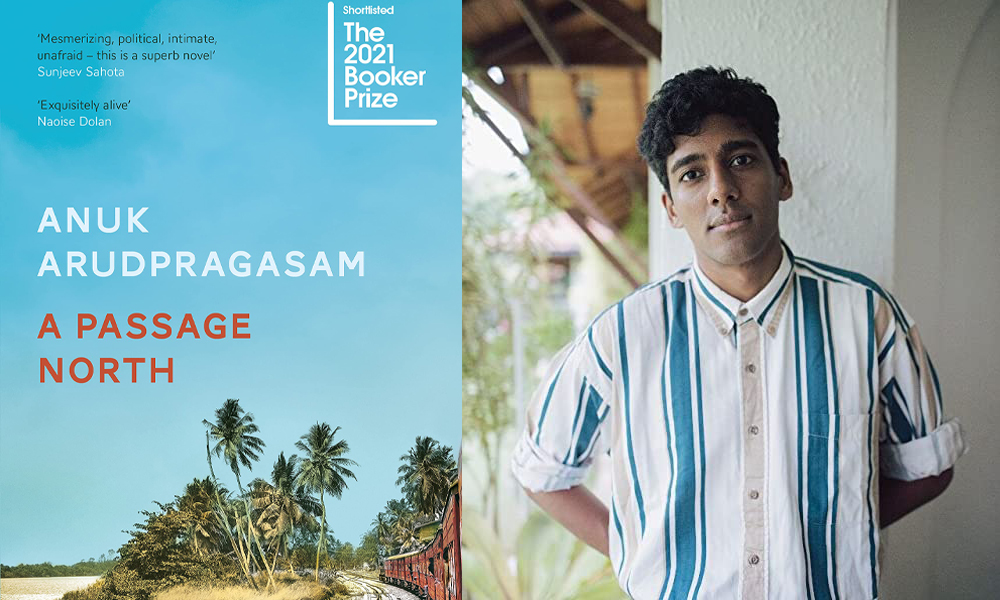Arudpragasam’s second novel explores characters who struggle to survive in the wake or on the edges of the trauma of the Sri Lankan Civil War

Anuk Arudpragasam’s award-winning debut novel, The Story of a Brief Marriage (2016), explored characters who were in the thick of conflict, being bombed by the Sri Lankan army while eking out an existence of sorts in a Tamil refugee camp during the latter stages of the Sri Lankan Civil War (1983–2009), a conflict staged between a Buddhist Sinhalese majority in the south and a Hindu Tamil minority in the north. (Arunpragasam is Tamil.) It ended in victory for the Sri Lankan army and the genocidal wipeout of their Tamil opponents and numerous Tamil civilians besides. This, his second novel, explores characters who struggle to survive in the wake or on the edges of that trauma.
Arudpragasam’s writing style – long, multiclause sentences – is overwhelming at first. Initially, at least, you find yourself waiting anxiously for a full stop and the chance to come up for air. As the detail and qualification of a statement accumulates, the experience is a bit like watching Charles and Ray Eames’s film Powers of Ten (1968), a portrait of the universe that zooms out from planet Earth and then back in to a quark. But once you get into the rhythm, it’s easy, perhaps even pleasant, to let yourself be swept away. Just as Krishnan, the central protagonist of A Passage North, seems to be caught up in a drift through life and postconflict Sri Lanka. Haunted by a girlfriend, Anjum, who left him to commit to activism. By a war he’s experienced at one remove – largely through gruesome blogposts and online images, the posts of expatriate Tamils who haunt the internet and spend ‘their free time trying to convince themselves that their pasts on this island had really taken place’, who campaign to have informal Hindu temple sites named on Google Maps in order to maintain their connections to a land in which their culture and heritage is being slowly erased. As to the Tamils who remain, ‘memory became far harder to maintain when all the clues to that memory that an environment contained were systematically removed’. In a sense, Krishnan, who has, for a period of time, been studying in India, is trapped between these two poles, absent and present, and with something of a guilty-survivor syndrome. Albeit of an experience he never actually had to survive. Which only seems to have enhance those feelings of guilt.
The passage in question is a train trip from the Sri Lankan capital in the south to the Tamil heartlands in the northeast, to attend the funeral (whose rituals he will not completely recognise or understand) of Rani, until recently Krishnan’s ailing grandmother’s carer, whose accidental death Krishnan regards as suspicious (perhaps unsurprisingly given his internet-browsing habits) and a potential cue for his grandmother’s own demise. The chance to investigate provides an opportunity to assert his own agency and, in a way, to connect with the suffering of his people, where working for an NGO in the north or pursuing his love affair while studying for a PhD in India did not. ‘It was funny how similar desire was to loss…’, the author writes, ‘how desire too, like bereavement, could cut through the fabric of ordinary life, causing the routines and rhythms that had governed your existence so totally as to seem unquestionable to quietly lose the hard glint of necessity.’
Ultimately, A Passage North is a lengthy, expansive meditation on how we deal with finitude and death. Or don’t. Krishnan’s grandmother is in denial about her increasing physical and mental decrepitude (for someone still relatively young, the author’s description of the process and feelings of ageing is both convincing and moving); Rani, who was employed following a chance meeting with Krishnan in hospital, couldn’t get over the death of her two sons in the war. Along the way there are plenty of diversions about racism and queer politics in India, the creeping influence of China in Sri Lanka and a somewhat unexpected meditation on the similarities between a pair of female Black Tigers (a wing of the Liberation Tigers of Tamil Eelam that specialised in suicide missions) captured in a (real-life) documentary film and a collection of Buddhist poetry produced by nuns. At times Arudpragasam’s river of words seems to flow everywhere. Yet his story’s precision, vibrancy and genuine insight into the nature of loss in our times makes it an essential read.
A Passage North by Anuk Arudpragasam, published by Granta, £14.99 (hardcover)